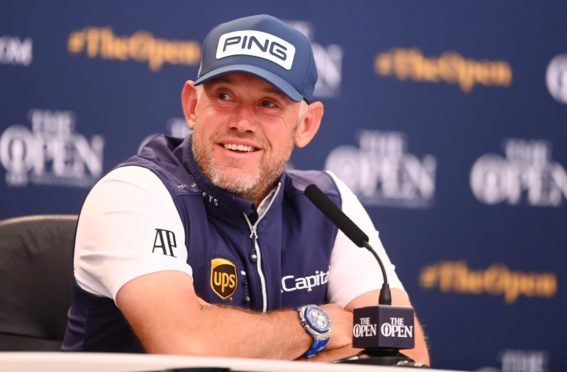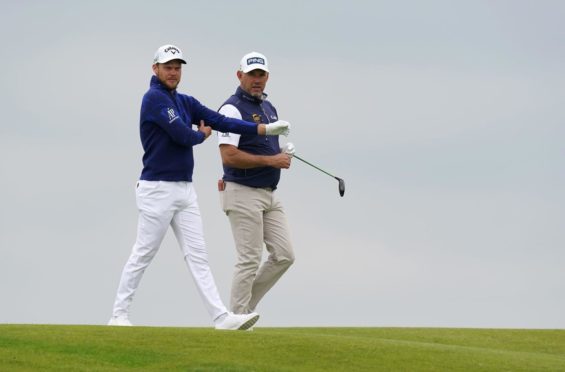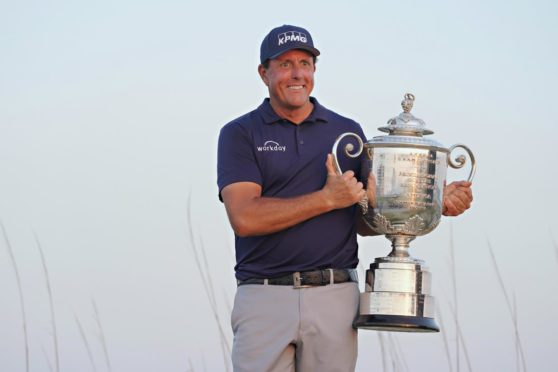Lee Westwood is more than happy to set a record this week for most majors played without a win – he sees it as an accolade.
Of course the 48-year-old wants most to emulate his long-time friend Darren Clarke’s Open victory at Sandwich from ten years ago this week. But to be the best player never to have won a major is a pretty good thing, he suggests.
It was suggested he wouldn’t care about potentially passing Jay Haas’ all-time record of 87 majors without a win, but he was having none of that.
‘I’ve been a good player for a long, long time’
“I do care about that,” he said. “That’s nice, that record. It shows I’ve been a good player for a long, long time.
“There’s not many people who have played in as many major championships as me. Best player never to win a major? Another accolade, yeah. I love it. Thank you.”
It’s not as if Westwood hasn’t had chances commensurate with his standing. He’s been in the top 10 19 times, probably getting closest to an Open in 2009, when he was a shot shy of the play-off between Stewart Cink and Tom Watson.
‘I’m not as consistent now’
He’s also playing pretty well – there were two strong places in Bay Hill and the Players in March – but not as well as you think he is, he freely pointed out.
“I would say I’m not as consistent now over longer periods of time,” he said. “It might be down to my age, and the fact that I’ve been playing out here for 28 years.
“Sometimes I go to a tournament and the intensity is just not there. But when the intensity is there and my game is there, mentally I think I’m stronger.
“I probably putt a little bit better now than I did 10 years ago. Short game is definitely better. Tee to green, probably not quite as good, but good enough.”
‘Reaping the benefits of the hard work for the last 20 years’
Longevity, as witnessed in Westwood, Phil Mickelson and Stewart Cink this year, is down to them looking after themselves, he believes.
“We’re from a generation that’s maybe had the benefit of sports medicine, maybe been a little bit more analytical and knowing what’s going on,” he said.
“Everybody sort of took that a little bit more seriously when Tiger came on the scene. The other players that wanted to get ahead of the game sort of looked to him, put some effort in then and worked on that. You’re seeing the benefits of that now.
“This is not just a, `I’ve been working out for six months and this is a quick-fix’ thing. Look at Bernhard Langer. He’s playing well into his 60s because he looked after himself 30 years ago. Not because he started going in the gym three weeks ago.
“Mine and Phil’s generationare now reaping the benefits of the hard work for the last 20 years, analysing movements in the swing and working on injury prevention.”
There’s also the perspective brought with experience and age, he added.
“I think when you get to our age, we maybe don’t treat it as seriously,” he said. “It’s easier to play golf when you’re a little bit more flippant about it. You see it for what it is, getting a small ball in a small hole.”


